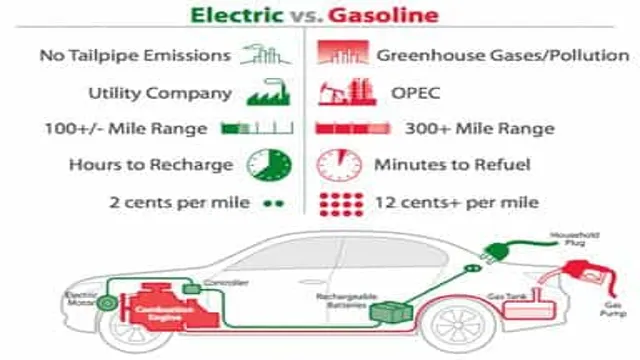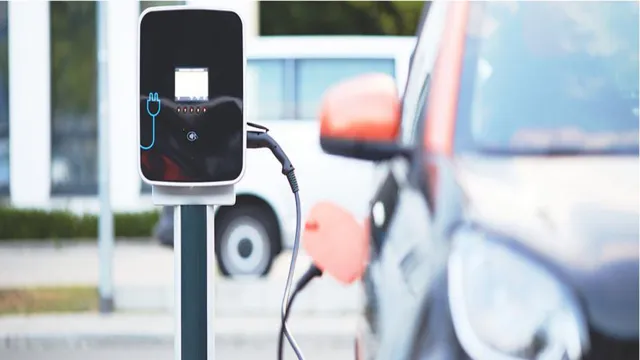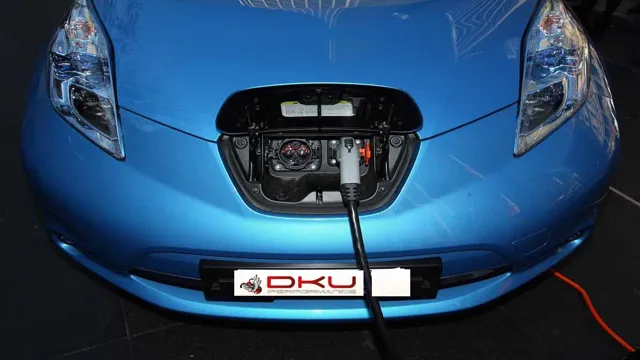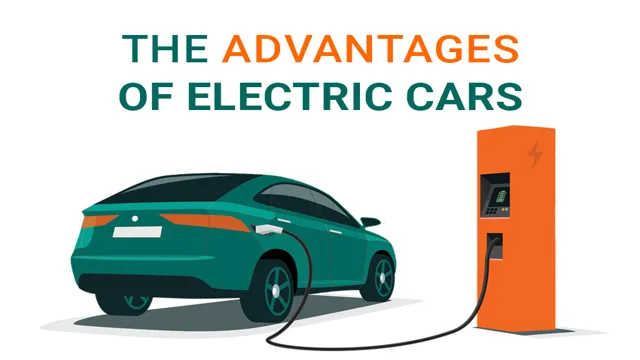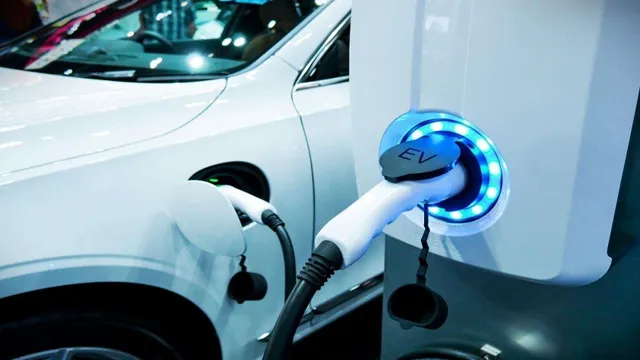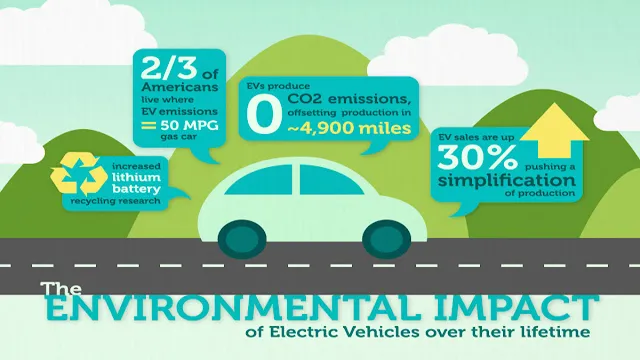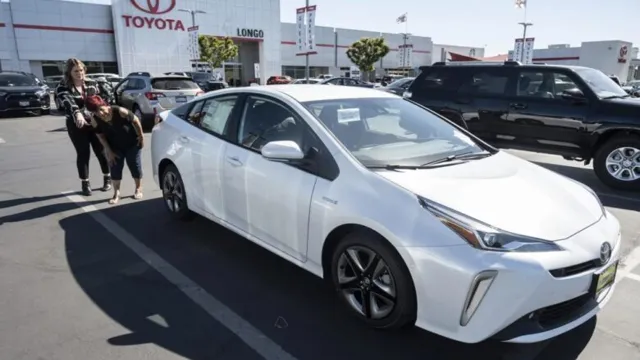The Future is Electric: 5 Compelling Benefits of Choosing Electric Vehicles Over Gas Cars
As the world becomes increasingly conscious of the impact of human activities on the environment, people are turning to electric cars as a more sustainable alternative to vehicles powered by gasoline. While gas cars have long been the norm, electric cars are quickly gaining popularity due to their impressive benefits. With advancements in technology, electric cars have become more affordable, efficient, and reliable.
In this blog, we’ll explore the benefits of electric vs gas cars. We’ll examine factors such as costs, environmental impact, maintenance, and efficiency, to give you a comprehensive understanding of why electric cars may be a better choice for you. Whether you’re a die-hard car enthusiast or simply looking for a greener alternative, this blog will help you make an informed decision.
So fasten your seat belt and let’s dive in!
Environmental Impact
Electric vehicles offer numerous environmental benefits compared to gas-powered cars. First and foremost, EVs produce zero emissions, meaning they emit no greenhouse gases or pollutants that harm the environment and contribute to climate change. This reduces air pollution, smog, and the negative health effects of breathing in harmful toxins.
Additionally, EVs promote energy efficiency and sustainability, as they can often be charged using renewable energy sources like wind or solar power. Moreover, electric motors are more efficient than gasoline engines, so EVs require less energy to travel the same distance. This also means they have a longer lifespan and require less maintenance, further reducing their environmental impact.
Overall, switching to electric vehicles is a crucial step towards protecting the environment and creating a more sustainable future.
Reduced Emissions
Reduced emissions are critical to reducing the harmful impact of human activities on the environment. The reduction of emissions is primarily achieved by the implementation of various strategies such as increasing energy efficiency, using renewable energy sources, implementing greener transportation methods, and reducing waste. But why does reducing emissions matter? Human activities such as transportation, agriculture, and industry contribute to the increase of greenhouse gases in the atmosphere.
These gases trap heat, causing the planet’s temperature to rise, leading to climate change. The harmful effects of climate change include rising sea levels, extreme weather conditions, and loss of biodiversity. Therefore, if we want to preserve the environment for future generations, we must take steps to reduce our carbon footprint.
By reducing emissions, we can slow down the negative impact of climate change and protect the planet for future generations.
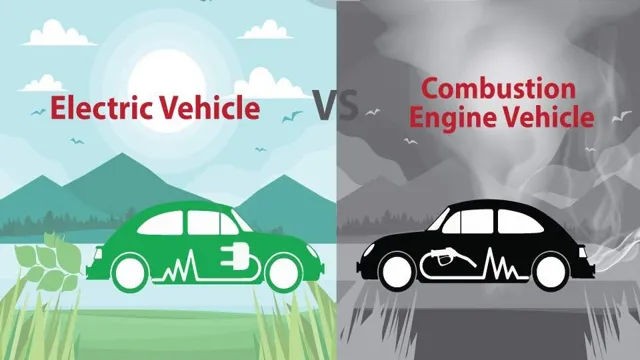
Less Noise Pollution
Noise pollution can have a disastrous impact on the environment. With the rise of urbanization, loud and disturbing sounds have become an everyday occurrence in many cities. However, we must understand that the constant exposure to noise can dramatically affect our health and well-being.
In addition to causing hearing loss and tinnitus, noise pollution can lead to sleep disturbances, stress, and other mental health issues. Not only that, but excessive noise can disrupt wildlife habitats and even alter their behavior. By reducing noise pollution, we can improve the quality of life for ourselves and the environment.
Imagine walking down a serene forest path, with the rustling of leaves and the chirping of birds, instead of the loud rumble of traffic. By implementing simple measures like regulating noise levels during construction or redesigning urban areas to incorporate more green spaces, we can make a significant difference in reducing noise pollution.
Cost Savings
When it comes to cost savings, electric vehicles (EVs) offer numerous benefits over gas cars. Firstly, EV owners can save a significant amount of money on fuel costs. While gas prices fluctuate frequently, electricity prices are typically more stable, allowing for more predictable and consistent charges.
Additionally, EVs require less maintenance than traditional gas cars because they have fewer moving parts, which means fewer repairs are needed. EVs also tend to have a longer lifespan and age better, meaning you can save money in the long run by not having to replace parts or even the entire vehicle as frequently as you would with a gas car. Another big advantage of EVs is the potential for reduced government fees and taxes.
Some cities and states even offer rebates and incentives for purchasing EVs, which can help offset the initial higher cost of buying one. Overall, choosing an EV over a gas car can provide considerable financial benefits in the long run, making it a more practical choice for many.
Lower Fuel Costs
Lower fuel costs are a great way to boost your savings and minimize expenses. With the ever-increasing gas prices, it’s essential to find ways to reduce your fuel consumption. One of the best ways to achieve this is by embracing fuel-efficient driving habits such as maintaining a steady pace, accelerating and braking gently, and avoiding idling.
Additionally, regular car maintenance, such as keeping your tires properly inflated, can also go a long way in improving fuel efficiency. Apart from these driving and car maintenance tips, you can also consider using public transportation, carpooling, or switching to a hybrid or electric car to save on fuel costs. By being mindful of your driving habits and taking simple steps, you can significantly reduce your fuel expenses and add to your savings, making it easier to keep up with other important financial obligations.
So, whether you’re commuting to work or running errands, try adopting fuel-efficient driving practices today and enjoy the added peace of mind that comes with a full wallet.
Federal Tax Incentives
When it comes to reducing your tax bill, you can’t go wrong with federal tax incentives. These incentives are designed to provide cost savings for individuals and businesses that make qualifying purchases or investments. For example, if you invest in renewable energy sources like solar panels or wind turbines, you may be eligible for a federal tax credit that can offset a significant portion of the cost.
Additionally, businesses that provide certain types of benefits to their employees like health insurance or retirement plans can also benefit from tax incentives. The key here is to do your research and understand the specific incentives that may apply to your situation. While the process can be complicated, the potential cost savings can be well worth the effort.
So, take the time to explore your options and see how you can save money on your taxes through federal tax incentives.
Less Maintenance
When it comes to maintaining a property, the costs can quickly add up. That’s why it’s important to consider the long-term cost savings that come with low-maintenance building materials. By investing in materials that require less upkeep, property owners can save money on labor, repairs, and replacements in the future.
Plus, reduced maintenance means less disruption to tenants or residents, creating a more pleasant living experience. One excellent example of low-maintenance building materials is composite decking. With no need for staining, sanding, or sealing, composite decking provides a durable and attractive outdoor space without the hassle.
By reducing the need for maintenance, property owners can save money and time in the long run while enjoying a more comfortable property with higher value.
Driving Experience
When it comes to driving experience, electric vehicles have several benefits over gas cars. Firstly, EVs are smoother and quieter thanks to their electric motors, which provide instant torque, resulting in quick acceleration. This significantly improves the overall driving experience, providing a more seamless and enjoyable ride.
Additionally, EVs are more suited to urban driving, as they perform better at lower speeds compared to gas cars. EVs also have regenerative braking, which converts kinetic energy into electrical energy, slowing the car down and recharging the battery at the same time. This feature further enhances the driving experience by making the vehicle feel more responsive and engaging.
Lastly, electric vehicles are more eco-friendly, making them a responsible and ethical choice for those who care about reducing their carbon footprint. Overall, the benefits of electric vehicles vs gas cars make them a great option for those seeking a more refined and sustainable driving experience.
Smooth and Quiet Ride
When it comes to driving, we all want a smooth and tranquil ride. No one wants to feel jolted or shaken as they cruise down the road. Luckily, modern cars are designed to provide drivers with a comfortable and serene experience.
From their suspension systems to their sound-dampening materials, these vehicles are engineered to reduce bumps, vibrations, and noise as much as possible. As you drive, you’ll feel more in control and less distracted, making for a safer and more enjoyable trip. So whether you’re commuting to work or embarking on a road trip, you can feel confident that your car will give you the serene ride you deserve.
Instant Torque
As an electric car driver, one of the most noticeable differences in the driving experience is the instant torque provided by the electric motor. Unlike a gasoline engine that needs to rev up before reaching its peak torque, an electric motor delivers maximum torque as soon as you step on the accelerator. This means that you can get up to speed quickly and smoothly, without any of the jerky acceleration common in traditional cars.
The feeling of instant acceleration is often compared to a rollercoaster ride, where you are pushed back into your seat as the car takes off. This unique driving experience is one of the key selling points of electric vehicles, and it’s not hard to see why. With instant torque, you can get around faster and more efficiently, making your daily commute a breeze.
Plus, it’s just plain fun to drive!
Charging Considerations
When it comes to the benefits of electric vehicles vs gas cars, charging considerations are a key factor to keep in mind. While gas cars can be refueled in just a few minutes at a gas station, electric vehicles require a bit more planning and forethought. However, the benefits of electric vehicles far outweigh this potential inconvenience.
For one, charging an electric vehicle is significantly cheaper than filling up a gas tank. Additionally, electric vehicles have far fewer moving parts than their gas counterparts, meaning they require less maintenance and repairs over time. When it comes to charging an electric vehicle, there are a few things to keep in mind.
First, it’s important to invest in a high-quality charging station for your home. This ensures that you can easily charge your vehicle overnight without any issues. Additionally, it’s important to plan your trips so that you can charge your vehicle at public charging stations along the way.
While this may take a bit of extra planning, the benefits of driving an electric vehicle make it well worth the effort.
Conclusion
In the race between electric vehicles and gas cars, it’s clear that electric power reigns supreme. With benefits like reduced emissions, lower maintenance costs, and a cleaner conscience, it’s hard to argue against the appeal of electric cars. And let’s not forget the unbeatable perk of never again having to suffer through a gas station bathroom break.
So if you’re looking for a smarter, more sustainable way to get around, it’s time to ditch the gas guzzler and join the electric revolution.”
FAQs
What are the environmental benefits of electric vehicles compared to gas cars?
Electric vehicles produce fewer emissions and pollutants than gas cars, which helps reduce air pollution and slows down climate change.
How do electric vehicles save drivers money compared to gas cars?
Electric vehicles have lower operating costs than gas cars since electricity is generally cheaper than gasoline. They also require less maintenance and have longer lifespans.
Are electric vehicles as efficient as gas cars in terms of fuel economy?
Yes, electric vehicles are more energy-efficient than gas cars and can travel further on the same amount of energy. This translates to a lower cost per mile for electric vehicle drivers.
What are the performance benefits of electric vehicles compared to gas cars?
Electric vehicles have instant torque and acceleration, making them quicker and more responsive than gas cars. They also have a smoother driving experience due to the lack of vibrations and engine noise.
